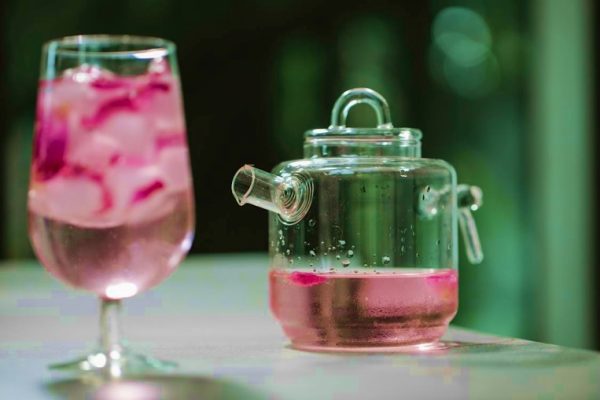
Reasons To Include Rose Water In Your Skin Care Routine
Rosewater is an important ingredient in popular skin care products because of its multiple health benefits including hydrating, soothing, and mildly astringent properties. Rose water is primarily composed of water and rose petals, but exact composition can vary depending on the method of extraction and the quality of the roses used.
Have you ever wondered what are the contents of rose water? Rose water is a byproduct of the steam distillation process called hydrosol, used to extract rose essential oil. During this process, the steam passes through rose petals, carrying both essential oil and water-soluble compounds. The condensed steam, containing water and water-soluble compounds, forms rose water.
- Water: The base ingredient of rose water is, of course, water. This acts as a solvent for extracting the beneficial compounds from rose petals.
- Essential oils: Rose water contains essential oils extracted from rose petals. These oils contribute to the fragrance of rose water and may also have therapeutic properties for the skin.
- Phenolic compounds: Rose water contains various phenolic compounds, such as flavonoids and tannins, which have antioxidant and anti-inflammatory properties.
- Vitamins and minerals: Rose water may contain trace amounts of vitamins (like vitamin C) and minerals such as calcium, magnesium, and potassium) derived from the rose petals.
- Aromatic compounds: The characteristic fragrance of rose water comes from the presence of aromatic compounds, such as geraniol and citronellol, which naturally occur in rose petals.
How rosewater can be beneficial for the skin?
- Hydration: Rose water helps maintain the skin’s natural moisture balance. It is a natural humectant, which means it attracts moisture to the skin, making it a desirable choice for individuals with dry or dehydrated skin.
- Soothing and calming: The anti-inflammatory properties of rose water can help soothe irritated skin and reduce redness. It helps in soothing skin in conditions like dermatitis and eczema.
- Balancing pH: Rose water has a slightly acidic pH, which can help balance the skin’s pH levels. Maintaining a balanced pH is important for healthy skin as it can help prevent issues like acne and excessive dryness.
- Mild astringent: Rose water acts as a mild astringent, helping to tighten pores and tone the skin. This can be beneficial for individuals with oily or combination skin.
- Antioxidant properties: The presence of antioxidants in rose water can help combat free radicals, which are harmful molecules that contribute to premature aging. This may contribute to maintaining youthful-looking skin.
- Refreshing mist: Spritzing rose water on your face can provide a refreshing sensation. This is particularly useful on a muggy day or when your skin needs it the most.
- Makeup setting spray: Rose water is a natural makeup setting spray. It helps set your makeup and gives a dewy finish while offering skin benefits.
- Anti-aging: The antioxidants in rose water may help reduce the appearance of fine lines and wrinkles. Regular use may contribute to overall skin health and vitality.
- Cleansing: Rose water is a gentle cleanser to remove impurities and traces of makeup. It is especially suitable for individuals with sensitive skin.
- Stress reduction: The aroma of rose water has a calming effect and may help reduce stress. Including it in your skincare routine can provide a sensory benefit.
How to Use Rosewater for Skin:
- Facial toner: Apply rose water with a cotton ball as a toner after cleansing to balance the skin’s pH and tighten pores.
- Hydrating mist: Spritz rose water on your face throughout the day for a refreshing burst of hydration.
- Mix with other ingredients: Combine rose water with other natural ingredients like Aloe vera or glycerin for a hydrating and soothing face mask or moisturizer.
- Makeup setting spray: Use rose water as a natural setting spray to set your makeup and add a dewy finish.
- Cleansing: Mix rose water with your regular cleanser or use it alone to cleanse your face.
When purchasing rose water choose a product that is pure and free from synthetic additives. As with any skincare product, do a patch test first to ensure you do not have an adverse reaction. If you have specific skin concerns or conditions talk to a dermatologist.
Image credit: Photo by Charlotte May: https://www.pexels.com/photo/glass-with-ice-cubes-and-rose-petals-5946999/ (Free for commercial use)
Author: Sumana Rao | Posted on: February 6, 2024
« Here Are Healthy Reasons to Eat Tart Cherries Including Broccoli In Diet Could Help Prevent Stroke »






















Write a comment